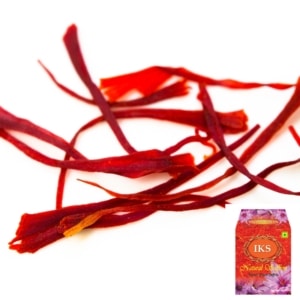Saffron for Thyroid: A Natural Approach to Supporting Thyroid Health
Saffron for Thyroid – Thyroid health is crucial for the overall well-being of our body.
The thyroid gland, located in the neck, plays a vital role in regulating various bodily functions, including metabolism, energy production, and hormone balance.
When the thyroid gland is not functioning optimally, it can lead to a range of health issues.
While medical treatments are available, some people seek natural remedies to support thyroid health.
One such remedy gaining attention is saffron. In this article, we will explore the potential benefits of Kashmir Saffron for thyroid health and its role in promoting overall well-being.
1. Introduction
Saffron, scientifically known as Crocus sativus, is a spice derived from the flower of the saffron crocus.
It has a long history of use in traditional medicine and culinary practices. Known for its vibrant color, distinct aroma, and unique flavor, saffron has also piqued the interest of researchers due to its potential health benefits.
2. Understanding Thyroid Health
Before delving into the benefits of saffron for thyroid health, it is essential to understand the role of the thyroid gland.
The thyroid gland produces hormones that regulate metabolism, growth, and development.
It releases two main hormones: triiodothyronine (T3) and thyroxine (T4). When the thyroid gland is imbalanced, it can result in thyroid disorders such as hypothyroidism and hyperthyroidism.
3. The Potential Benefits of Saffron for Thyroid
3.1 Regulation of Thyroid Hormones
Research suggests that saffron may help regulate thyroid hormones.
A study published in the Journal of Ethnopharmacology found that saffron extract could enhance the production of thyroid hormones in animals.
However, further research is needed to validate these findings and understand the precise mechanisms of action.
3.2 Antioxidant Properties
Saffron contains compounds with potent antioxidant properties, such as crocin and crocetin.
Antioxidants help protect the body against oxidative stress caused by free radicals. Oxidative stress can contribute to thyroid dysfunction.
By incorporating saffron into your diet, you may potentially support your thyroid health by reducing oxidative stress.
3.3 Anti-Inflammatory Effects
Inflammation is a common underlying factor in thyroid disorders.
Saffron possesses anti-inflammatory properties that may help alleviate inflammation in the thyroid gland.
Studies have demonstrated saffron’s ability to inhibit inflammatory markers and modulate immune responses, suggesting its potential as a natural anti-inflammatory agent for thyroid health.
4. Saffron and Thyroid Disorders
4.1 Hypothyroidism
Hypothyroidism occurs when the thyroid gland does not produce enough thyroid hormones.
Common symptoms include fatigue, weight gain, dry skin, and depression.
While saffron may offer some benefits for thyroid health, it is important to note that it should not replace conventional medical treatment.
If you suspect you have hypothyroidism, it is crucial to consult with a healthcare professional for an accurate diagnosis and appropriate treatment.
4.2 Hyperthyroidism
Hyperthyroidism, on the other hand, refers to the overproduction of thyroid hormones.
Symptoms may include weight loss, increased heart rate, anxiety, and tremors.
As with hypothyroidism, saffron should not be used as a sole treatment for hyperthyroidism.
Proper medical evaluation and guidance are essential for managing this condition effectively.
5. How to Incorporate Saffron into Your Diet
If you are considering using saffron to support your thyroid health, here are some ways to incorporate it into your diet:
5.1 Saffron Tea
Saffron tea is a simple and effective way to enjoy the potential benefits of saffron.
Steep a few strands of saffron in hot water for about 10 minutes. You can enhance the flavor by adding a touch of honey or a squeeze of lemon.
Enjoy this aromatic tea as part of your daily routine.
5.2 Saffron-Infused Dishes
Saffron’s unique flavor makes it a popular spice in various culinary traditions.
Add a pinch of saffron to rice dishes, stews, or soups for a delightful twist.
The vibrant color and subtle taste of saffron can elevate your meals while potentially offering some benefits for your thyroid health.
6. Precautions and Considerations
While saffron is generally safe for consumption, it is essential to exercise caution and consider the following:
Quality: Ensure you purchase high-quality saffron from reputable sources to ensure purity and effectiveness.
Allergies: Some individuals may have allergies or sensitivities to saffron. If you experience any adverse reactions, discontinue use and consult a healthcare professional.
Dosage: Follow recommended guidelines and avoid excessive consumption of saffron, as high doses may have adverse effects.
Always consult with a healthcare professional before incorporating any new supplement or natural remedy into your routine, especially if you have an existing medical condition or are taking medications.
7. Conclusion
Saffron shows promise as a natural approach to supporting thyroid health.
While research is still ongoing, its potential benefits in regulating thyroid hormones, antioxidant properties, and anti-inflammatory effects make it an intriguing option for individuals looking to complement conventional treatments.
Remember, saffron should not replace medical advice or treatment for thyroid disorders, and it is important to seek professional guidance for proper diagnosis and management.















